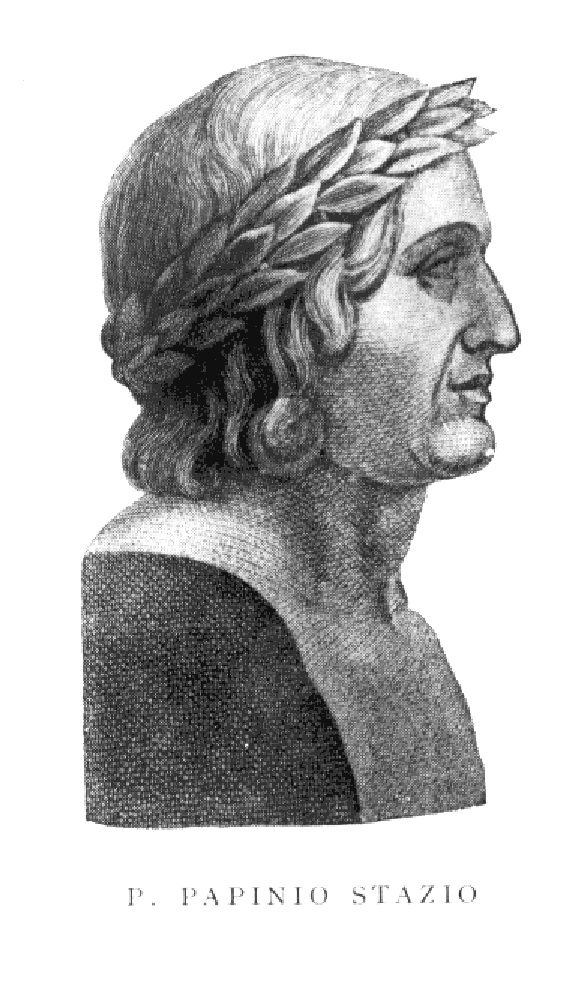Públio Papínio Estácio , conhecido como Estácio foi um poeta da Roma Antiga.Era descendente de gregos e filho de um poeta profissional, também professor. O que se sabe sobre sua vida provém quase exclusivamente de alusões encontradas em sua própria obra, especialmente em Silvae, onde, em uma passagem de 300 versos, recapitula a vida de seu pai e fala da influência que tivera sobre ele. Desde jovem se notabilizou na poesia, vencendo concursos. Quando Estácio era ainda um adolescente, seu pai mudou-se para Roma, levando a família, a fim de fazer uma carreira na capital do Império. O poeta entrou em contato com a corte e fez sucesso, conhecendo Domiciano, que lhe presenteou com uma villa de campo. Em Roma produziu as obras pelas quais é lembrado hoje: um poema épico, Tebaida, que narra o conflito entre os filhos de Édipo pelo trono de Tebas; Silvae, uma coletânea de poemas de circunstância que retratam o ethos e a cultura da elite, e um épico inacabado, Aquileida, sobre a vida de Aquiles, do qual só chegou a escrever a primeira seção. Outras obras que compôs foram perdidas; de algumas sobrevive uma ou outra citação. Voltou para Nápoles pouco antes de falecer.Seu estilo é uma mescla de influências gregas e romanas. Foi o primeiro poeta romano que descreveu longamente em seus poemas outras obras de arte e arquitetura, dando informações preciosas sobre a cultura material do período. Entre seus tópicos, descreveu com grande detalhe a grande Estátua equestre de Domiciano no Fórum Romano, as termas etruscas, as villas de Vopisco e Polião, o templo de Hércules e o Palácio de Domiciano. Quando analisa seu estilo, sua técnica, sua beleza, quando aplaude inovações e expressões de ousadia e criatividade, traça um claro painel da cultura da elite romana de sua época. Exaltando sua educação, seu bom gosto, seu recato, seu amor pelas artes, pela filosofia, pela amizade e pela família, mas também comprazendo-se em seu estilo de vida magnificente, o poeta elenca os principais valores da classe privilegiada. O poeta fez um grande sucesso em vida. Mais tarde foi criticado por excessos de liberdade na forma.
Wikipedia
✵
45 d.C. – 96 d.C.
